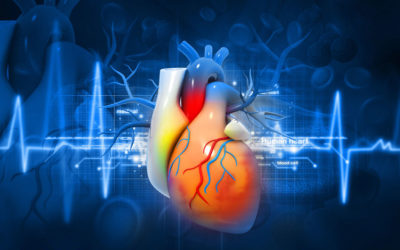Health Benefits of Eggs
Eggs are a staple in the American diet. They can be part of a healthy meal (veggie frittata) and they can also be added to or accompanied by food items that make them less than healthy (fried eggs with hash browns, bacon and pancakes). There have been mixed messages about the true health benefits of eggs. Some people believe that eggs will cause high cholesterol while others can’t imagine life without them. Who is right?
We’ll tackle the cholesterol issue first:
Eggs are high in cholesterol. The cholesterol is found in the yolk of the egg. However, the most recent research shows that dietary cholesterol alone is not what increases serum cholesterol levels and eggs by themselves are not associated with increased risk of cardiovascular disease. It is the combination of dietary cholesterol with saturated fats that leads to high levels of unhealthy (LDL/ low density lipoprotein) cholesterol levels. The example of the eggs paired with bacon, hash browns cooked in oil and a side of pancakes is an instance where eggs are suddenly not so healthy due to the saturated and trans fats of oils used to cook the eggs and the other meal components. The sodium in the bacon doesn’t do the heart any favors either. When consumed alone, or with healthy ingredients, the small rise in LDL cholesterol that might come from egg consumption is offset by the simultaneous increase in “good” cholesterol (HDL/ high density lipoprotein). In short, eating dietary sources of cholesterol is not going to cause you to get high cholesterol. According to the Mayo Clinic, the effect of egg consumption on blood cholesterol is minimal when compared with the effect of trans fats and saturated fats.

There are Numerous (and tasty) Health Benefits of Eggs
How much can you eat?
Past guidelines suggested a 300-milligram daily limit of dietary cholesterol. The most recent 2015-2020 Dietary Guidelines removed the cholesterol limit but did encourage individuals to consume as little dietary cholesterol as possible. Their reasoning for that caution was that many dietary sources of cholesterol are also higher in saturated fats, which have been shown to increase LDL cholesterol. The good news is that eggs are very low in saturated fats so unless you’re consuming bacon or sausage with your eggs, you can consume your eggs in peace.
A 2016 study published in the American Journal of Clinical Nutrition found that consumption of eggs did not increase risk of heart disease. Some studies have shown that egg consumption may actually prevent some types of strokes.
The main thing to do if you have high cholesterol or co-morbidities that increase heart disease risk (diabetes, high blood pressure), is to limit your intake of saturated fats.
Now that we have that cleared up, let’s explore the health benefits of eggs. There are a lot, so let’s get to it!
- Protein. This is likely the most well-know health benefit of eggs. An egg of any size is the protein equivalent of 1 ounce of lean meat. What’s a more convenient protein-rich snack than a hardboiled egg? A single egg contains just under 7g of protein. Though both the egg and the yolk contribute some protein, a little more than half comes from the white. There are 4g of protein in the white of the egg compared to 2.7g coming from the yolk. To boost the protein content of any omelet, add additional whites to your egg.
- Eye health. My mom always told me to eat carrots to improve my vision due to the carotenoids. Yours might have done the same! I’ve never heard of anyone telling their kids to eat eggs for healthy eyes, but now you can! This is due to lutein and zeaxanthin, two carotenoids that naturally give color to egg yolks and also provide color to a variety of vegetables. Lutein and zeaxanthin are also key components of the human eye. They provide antioxidants and anti-inflammatory properties and help maintain eye health by filtering out high-energy blue spectrum lights. The filtering of blue light helps protect your eyes from macular degeneration and glaucoma. The North Carolina Egg Association explains that even though dark-colored vegetables like as spinach contain more lutein and zeaxanthin than eggs do, the type found in eggs is more bioavailable. This means that the body absorbs them more easily from eggs than from spinach or dietary supplements.
- Healthy Fat. The majority of fat from eggs is found in the yolk with a miniscule amount found in the white. I’ve had patients tell me that they opt for only whites to save calories from fat. I don’t recommend this, even for those trying to lose weight, because healthy fats help keep you satisfied! When you’re satisfied, you’re less likely to snack later. Some of the healthy fats are omega-3s, which provide anti-inflammatory benefits. The fat found in the yolk of the eggs boosts absorption of fat-soluble vitamins (A, D, E, K). A study conducted by researches at Purdue University found that adding eggs to a raw vegetable salad increased the absorption of carotenoids almost ninefold!
- Brain health. This is due to choline, an essential nutrient. The liver makes small amounts of choline but not enough to meet our needs so we must obtain it from dietary sources. According to University of Berkley’s Wellness Magazine, in the body, choline is used to make acetylcholine, a key neurotransmitter, as well as lecithin, which helps maintain cell membranes, transmit nerve impulses, process fat and cholesterol, among other important functions.
Choline is extremely important for pregnant women. It plays a key role in fetal brain development and studies show that pregnant women with a low blood level or intake of choline are at increased risk of having children with neural tube defects.
There is some evidence that consumption of large amounts of choline very early in life increases the ability to retain mental abilities with age.
Eggs just so happen to be one of the best dietary sources of choline, so eat up for cognitive health!
- Vitamins and Minerals. Both the white and the yolk provide key nutrients. Here’s a quick rundown:
- Selenium- supports thyroid health
- B Vitamins (B12, riboflavin, pantothenic acid)- energy metabolism, immune function, nervous system, red blood cells, immune health
- Vitamin D- helps with the absorption of calcium and also boosts immune function (**eggs are one of the few dietary sources of Vitamin D!)
- Phosphorus- healthy bones and teeth as well as energy metabolism
- Vitamin A- healthy skin, vision health and immune function
- Folate- brain health, DNA synthesis and repair, and likely the most widely-know benefit is that it supports fetal development by reducing risk of neural tube defects
- Vitamin E- powerful antioxidant that protects against free-radical damage and slow the aging process of cells
If you’re already an egg-eater, you have all-the-more reason to continue. If you’ve been avoiding eggs due to perceived health risk, fear no more! Just make sure that when you eat them, they’re not accompanied by foods high in saturated fats.
Resources:
http://ajcn.nutrition.org/content/early/2016/02/10/ajcn.115.122317.abstract
http://www.berkeleywellness.com/supplements/vitamins/article/should-you-boost-your-choline
https://www.choosemyplate.gov/2015-2020-dietary-guidelines-answers-your-questionshttp://ncegg.org/eggs-a-delicious-way-to-protect-your-sight/
http://www.globalhealingcenter.com/natural-health/9-incredible-health-benefits-of-folate/
http://ncegg.org/egg-nutrition-center/yolks-vs-whites/
https://www.ncbi.nlm.nih.gov/pubmed/20355006
https://www.ncbi.nlm.nih.gov/pubmed/26705841
https://ods.od.nih.gov/factsheets/VitaminE-HealthProfessional/
http://time.com/3763004/eggs-raw-vegetables-carotenoid-absorption-nutritional-benefits/?iid=sr-link2











